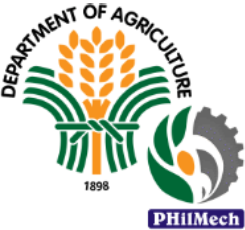

Development and Mechanization




"You are the disciples of BPRE!"
Executive Director Ricardo L. Cachuela posed this challenge to the participants of the Resource Person Development Course on Corn Postproduction Technology held recently at the Bureau of Postharvest Research and Extension (BPRE), Muñoz Science City.
Using the analogy of the disciples of God being messengers of His word, he added that members of the Postharvest Specialist Network (PHSN) who are expected to serve as resource persons themselves in the future should be the active agent of change and effective catalyst in the improvement of corn postharvest system. BPRE subject matter specialists shared their expertise on postharvest technologies and lecture delivery during the training.
"PHSN members should be the bridge between the research institutions and the farmers. The importance of the linkage cannot be underestimated. It is the extension workers who put meaning and significance to the various studies being undertaken within the Bureau," Director Cachuela said.
He emphasized that the training of postharvest experts on corn is a vital concern because the commodity is the second most important crop in the country. "Corn is a major ingredient in the formulation of livestock and poultry feeds. Thus, it is a critical sector in the country's fast-growing and market-expanding livestock and poultry industry," he explained.
Citing the recent damage caused by typhoon Harurot in major corn-producing areas in Northern Luzon, which resulted to high price of chicken in Metro Manila, he noted that, among others, timely and adequate technical assistance is needed now more than before because the country is sensitive lately to minor economic disturbance.
He stressed that it is imperative for those in the industry and those in the government to improve the corn postharvest system. Looking at the national production, he observed that despite the increase in the average productivity, area harvested, and average yield of corn in the country from 1995-1999, local production has not coped up with the huge and growing demand of the feeds industry. The country has been importing corn and corn substitutes from the USA, Argentina, and China.
Moreover, with trade liberalization, he said that production and trading would be determined by comparative advantage. Hence, competitiveness entails efficiency in postharvest system, sustainability in production, and conformity to the quality standard like mycotoxin level set by other countries. With these, the role of PHSN and the farmers is critical to attain the goals of food security, self-sufficiency, and global competitiveness.
The course, which drew the participation of PHSN members from the four regions in Luzon, aimed at upgrading the knowledge of the participants on corn postproduction technology and enhancing their presentation skills in the delivery of postharvest information to the farmers. The participants, joined by BPRE technical staff, undertook intensive lecture-discussion on the different aspects of corn postharvest operations and technologies and exhaustive instruction on the different presentation skills that must be improved.